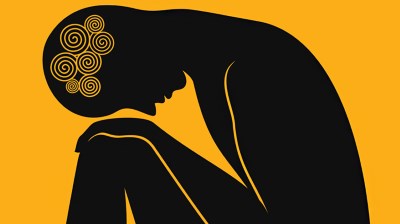According to the World Health Organization, depression is now the leading cause of poor health and disability across the globe. As of March 30th, 2017, more than 322 million people are suffering from depression (possibly more if undiagnosed).
Since 2005, depression rates have risen by more than 18%. Moreover, depression increases the risk of other major diseases and disorders such as addiction, suicidal behavior, diabetes, and heart disease (which are, in fact, the world’s biggest killers).
So what are some of the top medications used to combat depression? To name a few:
Lexapro – Nausea, dry mouth, trouble sleeping, constipation, tiredness, drowsiness, dizziness, increased sweating.
Zoloft – drowsiness, dizziness, tired feeling, mild nausea, stomach pain, upset stomach, constiation, dry mouth, changes in appetite and weight, insomnia, decreased libido, impotence, difficulty having an orgasm.
Severe side effects:
• very stiff (rigid) muscles, high fever, sweating, confusion, fast or uneven heartbeats, feeling like you might pass out;
• agitation, hallucinations, fever, overactive reflexes, tremors;
• nausea, vomiting, diarrhea, loss of appetite, feeling unsteady, loss of coordination; or
• headache, trouble concentrating, memory problems, weakness, fainting, seizure, shallow breathing or breathing that stops.
Cymbalta – lack of energy, constipation, diarrhea, dizziness, drowsiness, hypersonic, insomnia, nausea, sedation, headache, dry mouth.
Prozac – cold symptoms, drowsiness, dizziness, feeling nervous, nausea, upset stomach, constipation, increased appetite, weight fluctuation, insomnia, decreased sex drive, impotence, difficulty having an orgasm, dry mouth.
Wellbutrin – dry mouth, nauseam stomach pain, ringing in the ears, dizziness, headache, decreased sex drive, sore throat, muscle pain, skin rash, increased sweating, increased urination, weight fluctuations.
So what does this have to do with plant-based nutrition? Well, there is mounting evidence that free radicals may play important parts in the development of certain psychiatric disorders including…. DEPRESSION!
There was a study done that took 300,000 Canadians and monitored them for 9 years. What was found was that those who ate more fruits and vegetables had lower odds of depression, stress, and anxiety. Their conclusion was that since fruits and vegetables are rich in antioxidants, their mental health was elevated.
The problem with that study is that it relied on self reported data. So it’s possible that the participants were not accurate with their reporting, right? Well there was another study done. This time looking at 2000 people in the US and measuring their carotenoid phytonutrient levels in their blood (basically your antioxidant levels). To sum it up, it was found that higher levels, in fact, correlated with a lower chance of increased depressive symptoms! And more than this, there was what is called a dose-response; the higher the levels, the better people felt!
Lycopene is the most powerful ceroteniod antioxidant; roughly 100 times more powerful than vitamin E. It’s what gives tomatoes it’s red pigment and is also found in watermelon, pink grapefruit, guava, and papaya.
So then it stands to reason that people who eat ore of those fruits have less cases of depression right? Well…yeah! There was a study done that looked at 1000 men and women and of those, the ones who ate the most tomato products cut their odds of depression in half.
But don’t for one second think that you can take an antioxidant pill and be set. Only antioxidants found in whole foods have been found to protect against depression.
So why take a pill that can seriously screw up your body and brain when you can change your diet and fight it that way; it may not happen overnight but give it a shot. Worst case scenario is you still need the meds you’re already on but have gotten extra doses of micronutrient foods in you. And who knows…maybe you’ll have some awesome success, right?


